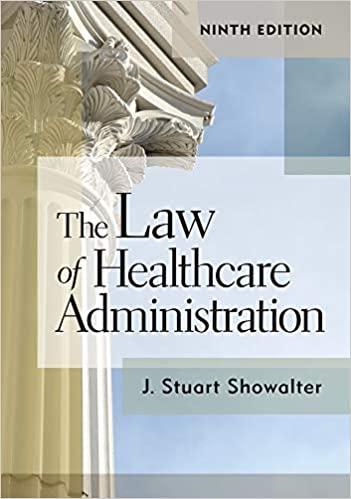Question
Question 1 1. Some context is required to answer this question. The written ruling of the Court of Appeal for the District of Columbia in
Question 1
1. Some context is required to answer this question. The written ruling of the Court of Appeal for
the District of Columbia in Frye v. U.S. is excerpted below. Within systems of law patterned on
the British legal tradition (which includes the U.S.) the role of judges is to rule on what the law
is; the decisions of lower-level courts may be appealed to higher level courts on the ground that
the lower-level judge erred in his or her ruling regarding the law. In an appeal the lawyers of the
parties argue before the appeals court judges as to how they believe the law should be interpreted
and then the Appeal Court issues its judgment (the sort of thing you have below). Read the
excerpt. State the main point of the paragraph. Is the court's ruling an argument, an explanation,
or both? Provide reasons for your answer. (Worth 3 marks)
FRYE v. UNITED STATES
54 App. D. C. 46, 293 F. 1013
No. 3968
Court of Appeals of District of Columbia
Submitted November 7, 1923 December 3, 1923, Decided
...Just when a scientific principle or discovery crosses the line between the experimental and
demonstrable stages is difficult to define. Somewhere in this twilight zone the evidential force of
the principle must be recognized, and while courts will go a long way in admitting expert
testimony deduced from a well-recognized scientific principle or discovery, the thing from which
the deduction is made must be sufficiently established to have gained general acceptance in the
particular field in which it belongs. We think the systolic blood pressure deception test has not
yet gained such standing and scientific recognition among physiological and psychological
authorities as would justify the courts in admitting expert testimony deduced from the discovery,
development, and experiments thus far made. The judgment [of the trial court] is affirmed.
Question 2
Read the excerpt from a student essay in the text box below. State the main point of the
paragraph. Is the paragraph providing an argument or an explanation or neither? Provide reasons
for your answer. (Worth 3 marks)
Common law jurisdictions, including Canada, the United States, and England, use adversarial
legal systems (hereinafter: AD). In this system, the investigation of some case and presentation
of evidence at trial is in the hands of the parties (i.e., lawyers for the prosecution, and
representatives of the person accused of some crime). Further, AD lawyers actively engage in the
questioning and subsequent cross-examination of witnesses. The testimonial accounts of
witnesses are shaped by the questions of the parties in examination-in-chief and crossexamination
intended to produce evidence in support of the questioning party's case strategy
(Drier, 2012). Both prosecutors and defence lawyers have a professional responsibility to act as
zealous advocates for their respective parties. According to the Rules of Professional Conduct
from the Law Society of Ontario (RPCLS), as zealous advocates lawyers are to "raise fearlessly
every issue, advance every argument, and ask every question, however distasteful, that the
lawyer thinks will help [their party's] case and to endeavour to obtain...the benefit of every
remedy and defence authorized by law" (5.1[1]). From Boucher v. The Queen, [1955], the role of
the prosecution "is not to obtain a conviction; it is to lay before a jury what the Crown considers
to be credible evidence relevant to what is alleged to be a crime" (p.23). Entrusted with the great
power of deciding whether or not to pursue an indictment, the prosecutorial role "...excludes any
notion of winning or losing...[and] is to be efficiently performed with an ingrained sense of the
dignity, the seriousness and the justness of judicial proceedings." (Ibid., p.24) Pertaining to
defence lawyers, there is a duty "...to protect [their] client as far as possible from being
convicted, except...upon legal evidence sufficient to support a conviction for the offence with
which the client is charged." (Ibid., 5.1[9]). All evidence is in the control of the parties.
Step by Step Solution
There are 3 Steps involved in it
Step: 1

Get Instant Access to Expert-Tailored Solutions
See step-by-step solutions with expert insights and AI powered tools for academic success
Step: 2

Step: 3

Ace Your Homework with AI
Get the answers you need in no time with our AI-driven, step-by-step assistance
Get Started


